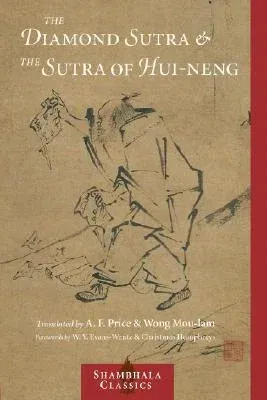The Diamond Sutra and the Sutra of Hui-NengPaperback, 8 November 2005

Qty
1
Turbo
Ships in 2 - 3 days
Only 1 left
Free Delivery
Cash on Delivery
15 Days
Free Returns
Secure Checkout

Part of Series
Shambhala Classics
Print Length
176 pages
Language
English
Publisher
Shambhala
Date Published
8 Nov 2005
ISBN-10
1590301374
ISBN-13
9781590301371
Description
Product Details
Book Format:
Paperback
Country of Origin:
US
Date Published:
8 November 2005
Dimensions:
22.81 x
15.54 x
1.37 cm
Genre:
Buddhist
ISBN-10:
1590301374
ISBN-13:
9781590301371
Language:
English
Pages:
176
Publisher:
Series:
Weight:
254.01 gm